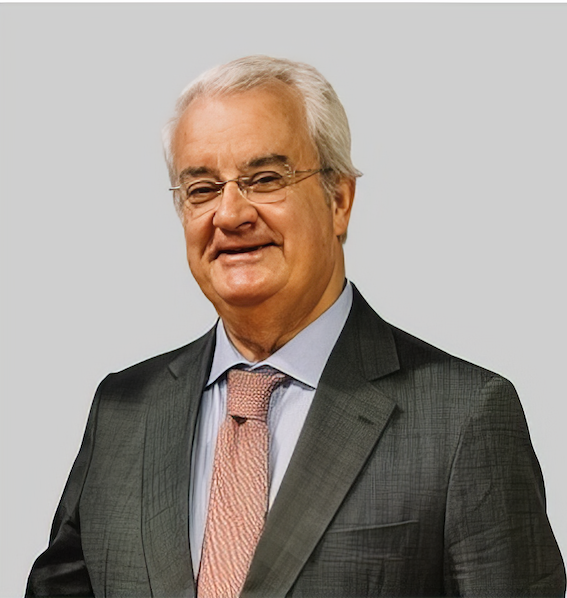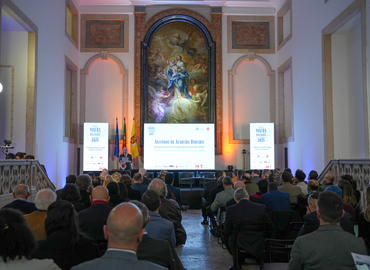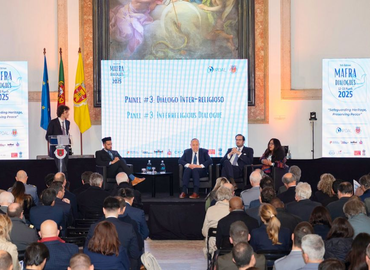Building Values-Based Communities: A Shared Responsibility

Opinion Article by Ambassodor António de Almeida Ribeiro, Acting Secretary General – The International Dialogue Centre - KAICIID
Few topics polarize opinions as much as migration. The question of how to regulate human mobility can inflame a conversation with family or friends, divide a neighbourhood, decide elections or shape inter-State relations. And yet, we risk overlooking a powerful transformative force that has shaped our world. Migration isn’t just about moving people; it’s about moving ideas, perspectives, and possibilities. When well-governed, it’s a win for everyone. It opens doors to new landscapes, sparks the exchange of ideas, and fuels the development of human potential in ways that benefit individuals and communities alike.
As a nation of migrants, we Portuguese understand firsthand how migration drives change and shapes societies. It's in our history and our DNA—a force that has inspired exploration, innovation, and cultural exchange across generations. And yet, living side by side isn’t always easy. Differences in ethnicity, culture, and religion can sometimes stir up fear, discomfort, or mistrust. During my time as Ambassador—whether in Cairo, Latin America, the European Union, or the Holy See, I saw firsthand that thriving in today’s complex and diverse societies takes a deliberate effort. It’s about more than just coexistence; it’s about intentionally creating a shared home, a space where everyone feels they truly belong.
Building a sense of belonging and home goes beyond physical relocation; it taps into something deeper; the universal need for love, recognition, and genuine human connection. It’s about creating meaningful relationships with the members of the community, breaking down barriers, and finding common ground. But this isn’t a one-way street. It’s a participatory process—a chance to come together and reimagine the values that form the foundation of our communities. Every voice matters in this dialogue, especially those from more vulnerable backgrounds, whether due to ethnicity, culture, religion, or social circumstances.
The secret to building a shared home? It’s in doing it together. A home where everyone feels seen, heard, and valued—a place where we all belong, no matter our story.
To navigate this multifaceted process, we need to reimagine migrant integration and inclusion as comprising two essential components: hardware and software.
The hardware consists of policies, laws, and services—the tangible structures enabling participation in a new society. These include access to housing, healthcare, education, and employment, which lay the foundation for economic and social inclusion. Without these supports, migrants and refugees face insurmountable barriers to livelihoods and rights.
However, hardware alone is insufficient. Integration also demands software: the emotional and spiritual infrastructure that welcomes diversity and fosters mutual respect. This includes the attitudes, values, and cultural openness of host communities. Welcoming attitudes, rooted in solidarity and common human dignity, create an environment where newcomers are not merely accommodated but recognized as persons of value. Without this acceptance, even the most robust policies risk failing.
This is where interreligious and intercultural dialogue becomes indispensable. Far from being an abstract theological exercise, interreligious dialogue addresses an urgent social need: grounding the social pact on common values that underpin cohesive and inclusive societies. It creates spaces for understanding, celebrating shared humanity, and addressing misconceptions that divide us. By fostering mutual recognition, dialogue builds bridges between newcomers and hosting communities, enabling them to create a shared sense of belonging.
As Acting Secretary General of the International Dialogue Centre – KAICIID, a unique organization governed by both States and religious leaders. I feel a profound responsibility to support its mission. KAICIID strives to create inclusive and dynamic dialogue spaces that foster values-based communities where everyone—every minority, every migrant, every individual, can enjoy equal rights, build meaningful relationships, and thrive.
This is a process that calls on each of us to take responsibility for building communities rooted in human dignity, mutual understanding, and peaceful coexistence.
This is the enduring legacy of Portugal’s peaceful 25 April transition—a powerful reminder of what can be achieved when a society chooses dialogue over division.



